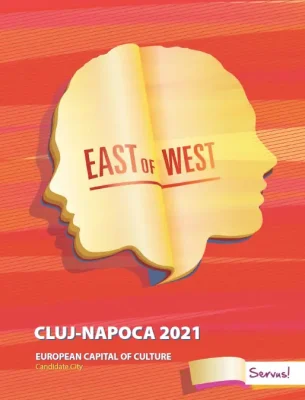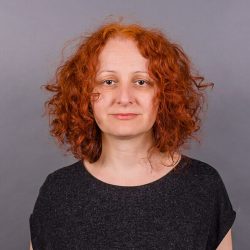Cluj-Napoca
Romania

In Romania and South-Eastern Europe, Cluj-Napoca is a prominent city, with a multifaceted cultural profile.
Established as a Roman settlement and later aș a fortress of German influence, the city developed into a flourishing town during the Middle Ages and was reshaped în baroque style during the 18th century. It has the vocation of a Central European cultural space, with many of its present cultural landmarks being built during the Austro-Hungarian Empire.
A city with a diverse and rich heritage, it has been shaped by all artistic trends and historical influences of the 20th century, from the tragedies of war to the Communist regime and the transition to democracy. Contemporary urbanism, modernism and social-realism add a specific touch to an urban landscape that is mainly eclectic at its centre and post-industrial on its peripheries.
ECOC
Cluj-Napoca is a former candidate for the European Capital of Culture title în Romania în 2021.
The concept of the candidacy was ‘East of West’ , as our core concept and re-signifying Europe is our artistic vision.
The bidding process has been developed by the Cluj-Napoca 2021 European Capital of Culture Association. The process started în 2010 and during the six years until the final selection phase, over 200 institutions, organisations and cultural operators contributed to the programme development.
The ECoC title for Romania în 2021 has been awarded to Timișoara.

The Organization
www.cccluj.roCluj Cultural Centre is a non-governmental organization for culture and urban development. Initially intended to prepare the city’s candidacy for the European Capital of Culture 2021, Cluj Cultural Centre implements a comprehensive program addressing strategic challenges of society.
This program addresses interdisciplinary projects which approach various themes: contemporary art, well-being, cultural and artistic education, urban regeneration, community connection, social inclusion, cultural industries, rural development, ethnography of imagined worlds, cultural sector’s capacity-building, social and urban innovation, international cooperation, research, and policies.
Cluj Cultural Centre has 112 members: cultural institutions and the local cultural organizations, Cluj universities, business clubs and clusters, civil society organizations, local and regional administration.
Who represents the city

He is a member of the Romanian Economic and Social Council, as a representative of the cultural sector and the civil society, and works with the World Bank as public participation and local development specialist.
He is the executive director of Cluj Cultural Centre, a culture and sustainable development NGO with 112 members: cultural organisations and institutions, universities, associations of the business environment and of the civil society, and the local and the regional administration.
He is the founding president of Fapte, an NGO which organises the Jazz in the Park festival and other cultural events with a community impact, and also the president of Nord, a community development association in Darabani, his hometown in the Moldova region. Ștefan was the president of AIESEC Cluj-Napoca and he founded the Junior Chamber International local subsidiary.
His personal belief is that people can be what they want to be.

She is Director and cofounder of AltArt Foundation, an organisation dedicated to experimental approaches to art, technology and society. She is co-founder of Fabrica de Pensule an independent collective space for contemporary arts in Cluj-Napoca.
She was a key member of the Cluj-Napoca 2021 ECoC bidding team (2011-2016), where she contributed to all stages of the candidature, including concept development and cultural programming.
She is engaged in policy development in Cluj-Napoca (she coordinated the elaboration of the Cultural Strategy of the city), at national level, through the work of the Coalition for the Independent Cultural Sector and at European level. She is a member of the Strategy Group of the “A Soul for Europe” initiative, member of the European House for Culture, and a board member of the Balkan Express network.
She contributed as speaker and trainer to a large number of professional forums, including prominent conferences such as the Berlin Conference, European Cultural Forum, IETM plenary meetings and Cultural Congress in Wroclaw.

Darius is a dynamic project manager with a passion for cultural collaboration and youth empowerment. As the project manager of the Culture Next Network and grant, he supports cities across Europe get connected and grow out of that connection. With a background in business administration and leadership, he thrives at the intersection of creativity and organization—whether it’s managing international projects, coordinating deliverables for the network, or running his next marathon. He is driven by connection, purpose, and the belief that good ideas grow best when shared.

Meda is the financial manager of Cluj Cultural Centre. She has been working in the financial field for over 10 years with NGOs in the cultural sector. She has collaborated over time with projects such as Jazz in the Park, Art in the Street and Zilele Nordului for which she has developed and implemented financial strategies, and has contributed to the writing and implementation of grant projects. She is the coordinator of the Classic Unlimited project, which proposes a new way of seeing, hearing, singing, living classical music. She believes in the power of art and culture to bring us together and change communities.